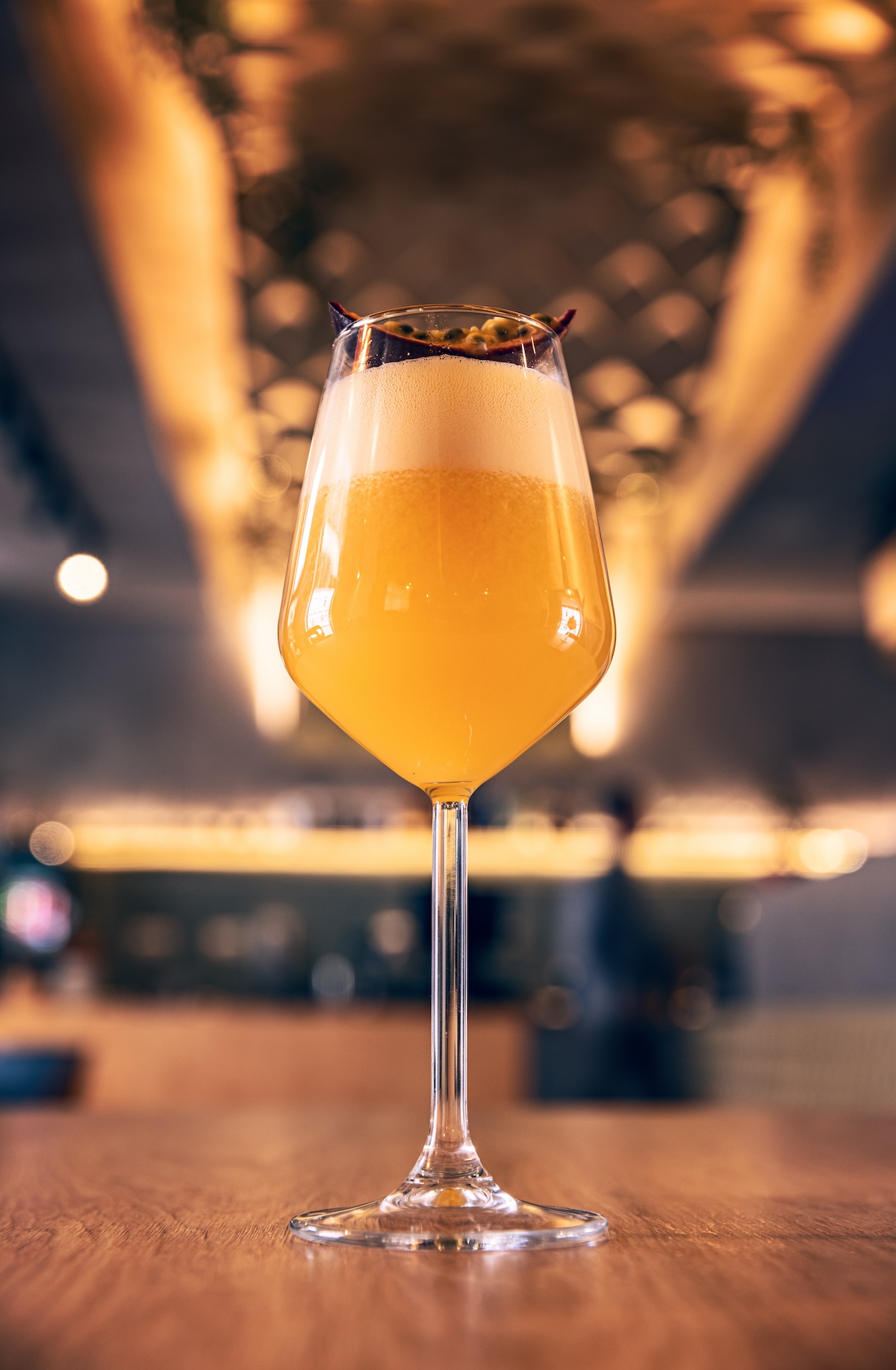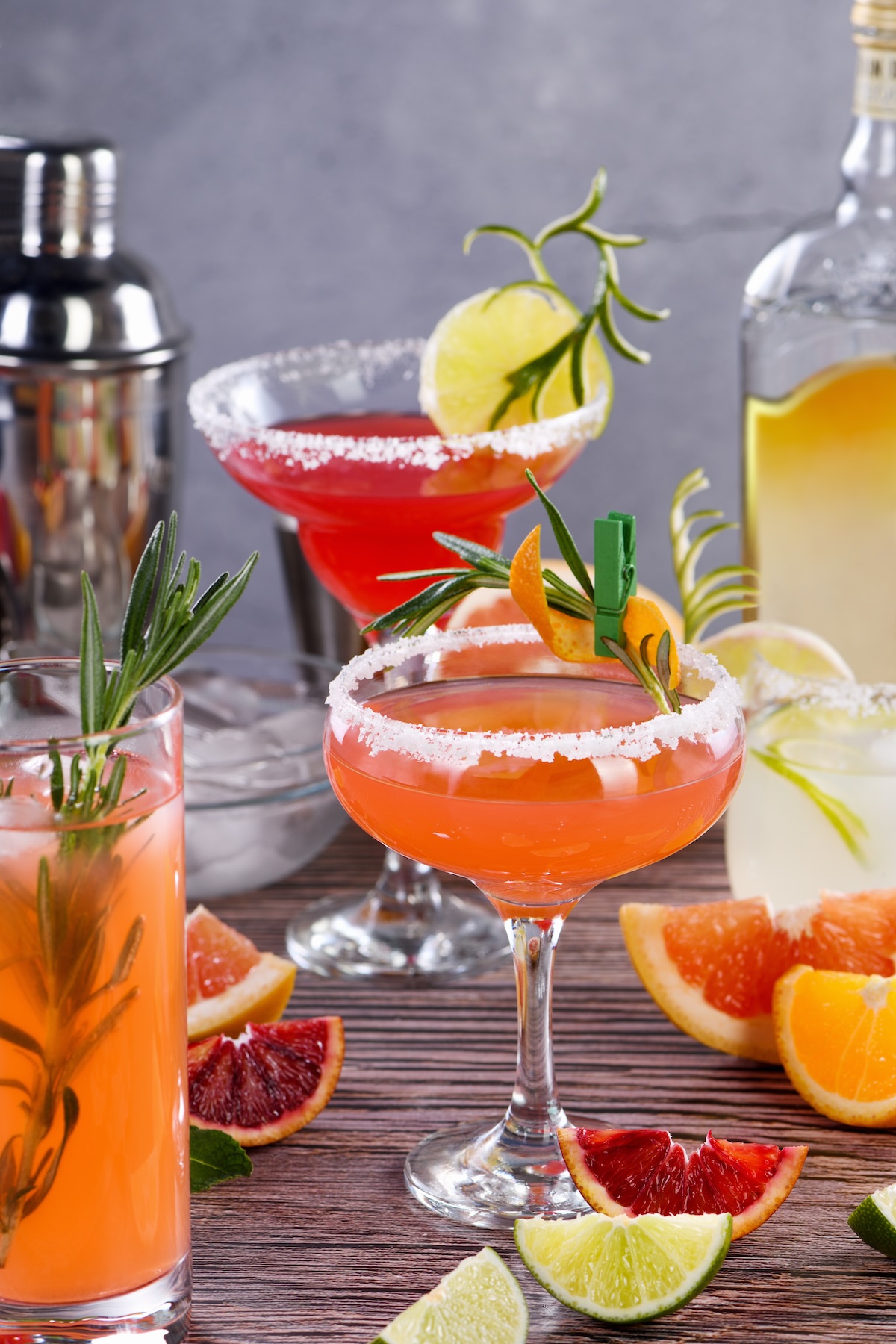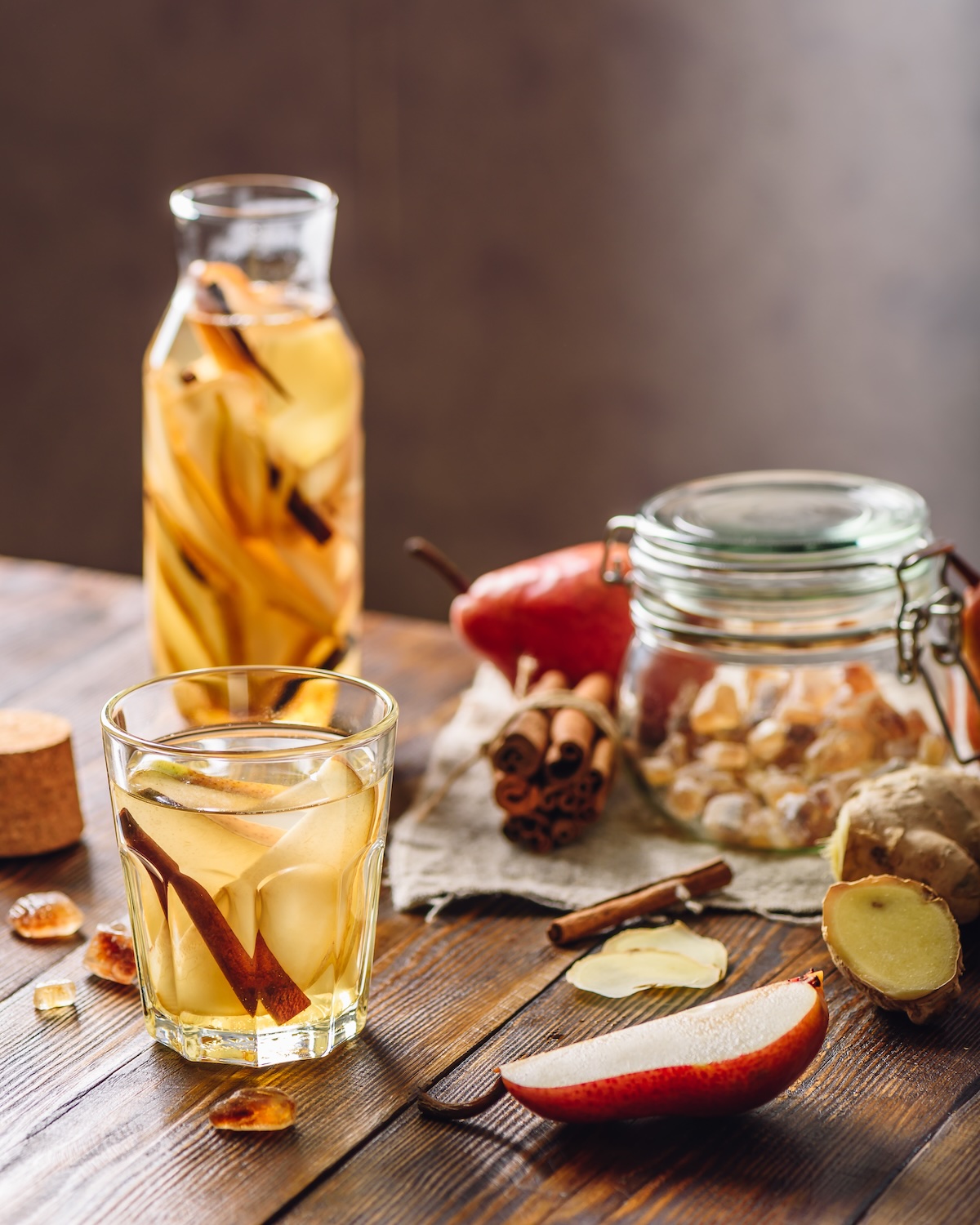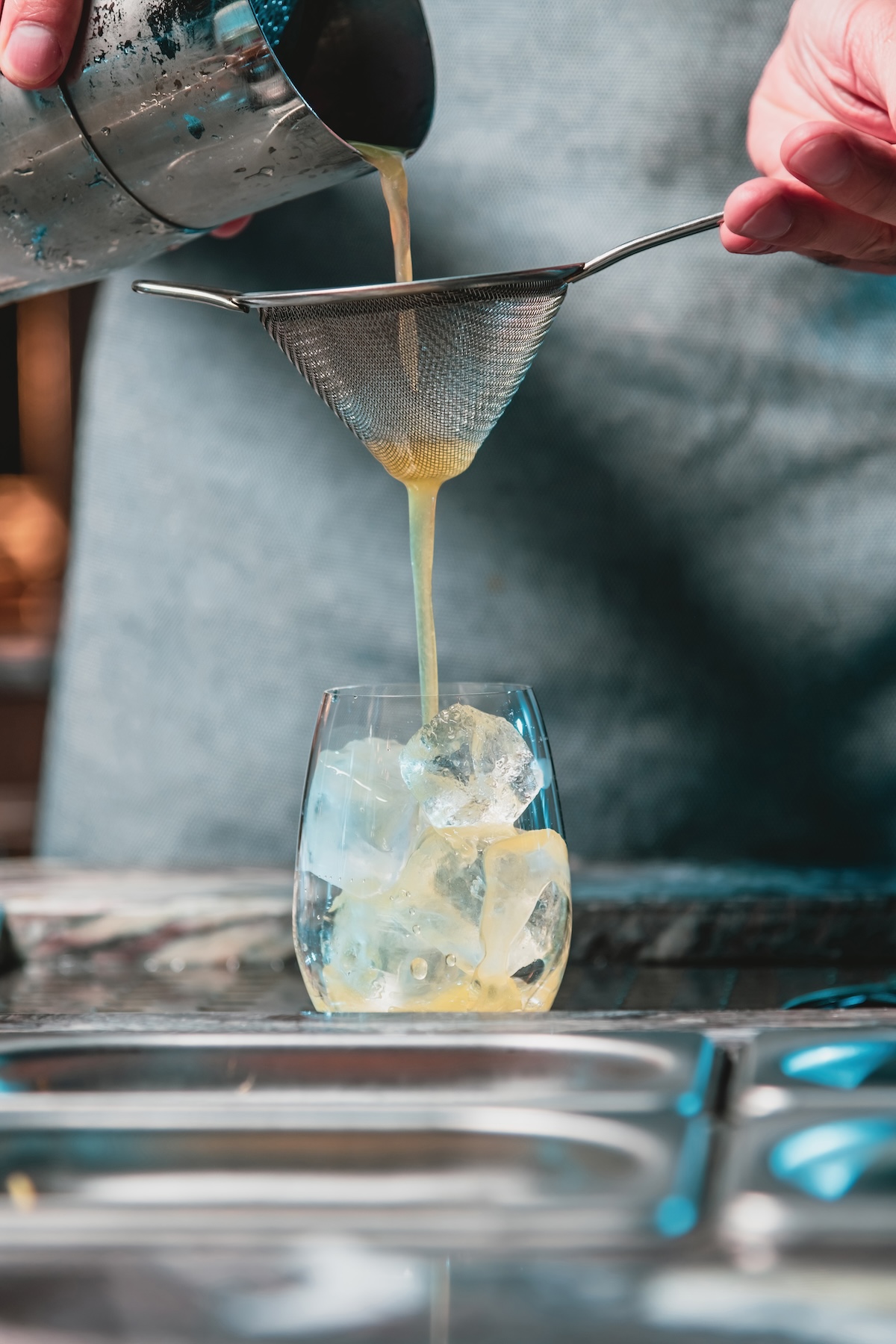When I first started getting into zero-proof drinking, I often found myself confused when comparing cocktails and mocktails. At face value, the main difference between a cocktail and a mocktail is clear: cocktails contain alcohol, while mocktails are alcohol-free. But the cocktail and mocktail difference can get, pardon the pun, murkier.

This distinction is key for those who enjoy the ritual of sipping on a thoughtfully prepared drink. Cocktails blend various spirits such as vodka, gin, rum, or whiskey with mixers like fruit juices, syrups, bitters, and soda to create a wide array of flavors and strengths.
Mocktails, on the other hand, emulate the complexity of cocktails but without the buzz. They are crafted with the same attention to detail, using fresh juices, herbs, spices and other non-alcoholic ingredients to present a beverage that feels just as special.
They can be “spirit”-forward, that is, centered on the many mock-alcoholic replacement products that have been popping up in recent years, or be focused on fruit juices and sodas for a lighter beverage instead. Whether I’m out with friends or hosting a get-together, mocktails provide an inclusive option so that everyone can toast together, regardless of their drinking preferences.
Defining Cocktails and Mocktails

In this section, I’ll clarify the distinguishing characteristics of cocktails and mocktails. Whenever talking about the difference between cocktail and mocktail, getting these basics down is important.
What Is a Cocktail?
A cocktail is an alcoholic beverage that typically blends various spirits with other ingredients, such as fruit juices, syrups, and bitters. You’ll often find garnishes like citrus wedges or olives to enhance the drink’s appeal. The key aspect is the presence of alcohol, which creates a wide array of flavors.
What Is a Mocktail?
Conversely, a mocktail mirrors a cocktail but omits the alcohol, making it suitable for all ages. These drinks are crafted with a combination of fruit juices, herbs, syrups, and carbonated beverages to mimic the complexity of a cocktail. They are perfect for those preferring a non-alcoholic option.
Ingredient Composition

When I mix a drink, the distinct difference between a cocktail and a mocktail comes down to one key ingredient: alcohol. This is why mocktails are often called zero-proof drinks.
Alcoholic Components
Cocktails include a base spirit such as vodka, rum, gin, tequila, or whiskey. These liquors are foundational to cocktails, providing the alcoholic content that categorizes the drink as a cocktail. For instance, a classic Martini uses gin or vodka as its base.
Non-Alcoholic Substitutes
Mocktails, on the other hand, mimic cocktail flavors without alcohol. Ingredients like seedlip, a non-alcoholic spirit, or a combination of fruit juices, herbal infusions, and carbonated waters stand in for the base spirit. The Moscow Mule mocktail, for example, might swap out vodka for ginger beer to create a non-alcoholic version that still satisfies the palate.
Occasions and Usage
In my experience, the choice between cocktails and mocktails often hinges on the event and the individual preferences or needs of guests. I have grown to believe that every social gathering or hosting opportunity should have a proper non-alcoholic beverage options that feels grown-up, sophisticated and fun. But here are a few specific examples for when zero-proof mocktails are preferable to alcoholic cocktails:
Social Contexts
At events like weddings or corporate parties, cocktails are often served as they can contribute to a celebratory atmosphere. However, for daytime social gatherings, baby showers or work events where alcohol might be less appropriate, mocktails provide a sophisticated alternative without the alcohol content.
Health and Accessibility Considerations
For guests who are pregnant, driving, or abstaining from alcohol for health or personal reasons, mocktails ensure everyone has a beverage option. Additionally, mocktails are great for inclusive celebrations, allowing those who do not consume alcohol to enjoy a variety of flavorful drinks.
Preparation and Craftsmanship

When I craft a cocktail or mocktail, the focus is on the intricacy of mixology techniques and the aesthetic appeal of presentation and garnishing. Gone are the days of just throwing 7-Up and maraschino cherries together in a cup! Today’s mocktails are mixed, flavored and garnished much like artisanal craft cocktails.
Mixology Techniques
I take great pride in precision when mixing drinks. Cocktails often require a mastery of various techniques like muddling herbs, infusing flavors, layering spirits, and mastering the shake or stir. With my mocktail recipes, I ensure that the balance of flavors is perfect, despite the absence of alcohol to meld the ingredients.
Presentation and Garnishing
For me, presenting a drink is much like presenting a dish; it needs to be visually appealing. I love using fresh ingredients for garnishes on cocktails, while mocktails get a playful twist with colorful straws or sugar rims. Both drinks are served in carefully chosen glassware to enhance the experience.
Frequently Asked Questions
I often get some common inquiries about the distinction between cocktails and mocktails to clear up any confusion. This FAQ section is for those of you who still have questions about the cocktail and mocktail difference!
A cocktail usually contains alcoholic spirits like vodka or rum, whereas a mocktail imitates a cocktail’s flavor without alcohol.
Mocktails have 0% alcohol, making them alcohol-free, while cocktails’ alcohol content varies widely depending on the mix.
Popular cocktails, such as margaritas, often have mocktail versions using similar non-alcoholic ingredients to achieve a comparable taste. Check out my mocktails recipes section to see many more ideas!
Mocktails avoid the calories from alcohol and can be a safe choice for those avoiding alcohol for health or personal reasons.
Non-alcoholic options include mocktails, sodas, juices, and alcohol-free spirits.
A cocktail mojito includes rum, while a mocktail mojito is prepared without alcohol but still tastes refreshingly minty.
Leave a Reply